Have you heard of the Gospel of Thomas? What about the Gospel of Philip or Judas? Although most Christians are only familiar with the four Gospels contained in the Bible, ancient Christians wrote quite a few other Gospels as well. How do we know which Gospels are to be trusted? My guest today is Dr. Simon Gathercole, professor of New Testament and early Christianity at the University of Cambridge. His new book, The Gospel and the Gospels, puts forward a commonsense historical methodology to determine which Gospels are most reliable.
Listen to this episode on Spotify or Apple Podcasts
—— Links ——
- Get your copy of The Gospel and the Gospels from Eerdmans or on Amazon
- More about Simon Gathercole here.
- See also my interview with Aaron Shelenberger: Episode 444 Resurrection Objection 1: Unreliable Gospels?
- More podcasts on apologetics here
- Support Restitutio by donating here
- Designate Restitutio as your charity of choice for Amazon purchases
- Join our Restitutio Facebook Group and follow Sean Finnegan on Twitter @RestitutioSF
- Leave a voice message via SpeakPipe with questions or comments and we may play them out on the air
- Intro music: Good Vibes by MBB Attribution-ShareAlike 3.0 Unported (CC BY-SA 3.0) Free Download / Stream: Music promoted by Audio Library.
- Who is Sean Finnegan? Read his bio here
—— Interview Questions ——
Dr. Gathercole is professor of NT and early Christianity at the University of Cambridge. He’s got degrees from Cambridge and Durham university, where he studied under James Dunn. Before we jump into the book, what was that like studying under Dunn?
Well, today, we’re talking about your book The Gospel in the Gospels. Writing this book must have been a monumental task. It’s 576 pages, hundreds of footnotes, published by Eerdmans, how long were you working on this project? Share a little about the process.
Many don’t know there were other Gospels that didn’t make it into the New Testament. Outside of Matthew, Mark, Luke, and John, what other Gospels are there? What are they like?
How can someone access these other Gospels? Would you recommend the Lost Scriptures by Bart Ehrman or The Complete Gospels by Robert Miller? or your own volume?
You’ve done a lot of work on non-canonical Gospels over the years. What drew you to them? What about them makes them worth studying?
Some say the four canonical Gospels–Matthew, Mark, Luke, and John–are not special or authoritative, but merely the ones favored by one group of Christians who managed to seize power and suppress all others. How common is this belief in the academy today?
What is the central thesis of your book?
How have others made the case that the canonical Gospels are best? (1 early composition, 2 massive popularity, 3 literary type of ancient biography, 4 attractiveness of worldview)
You focused on theological content. You talk a lot about the kerygma as the comparator (or measuring stick against which each of the Gospels should be evaluated). What is the kerygma?
What are the elements of the kerygma? (1 Jesus as Christ, 2 vicarious death, 3 resurrection, 4 crucifixion and resurrection as fulfillment of scripture).
Why not include Jesus healing people or other events like his Triumphal Entry into Jerusalem?
Let’s go through each of these briefly. What did you find with respect to Jesus as the Christ? When you compared the canonical vs. non-canonical gospels?
Now, the other Gospels, the non-canonical ones, do not have all four of these components. Why do you think that is? What do you think motivated them to edit or silence these elements of the kerygma?
Let’s talk briefly about the charge sometimes leveled against John as untrustworthy because it’s later or too theological or whatever. How does John fare in comparison to the synoptics?
How has your work on this been received in the academy so far?
What do you hope to see in the future?
Thanks for taking the time to talk with me today. Where can people go to find out more about you and the book?

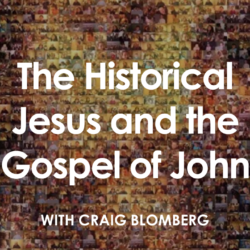
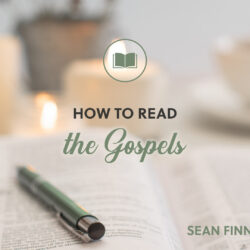
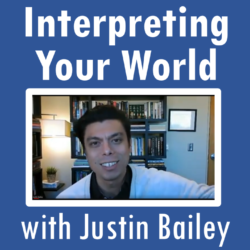
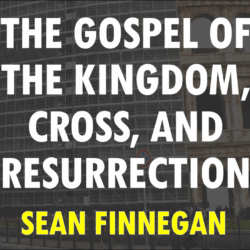
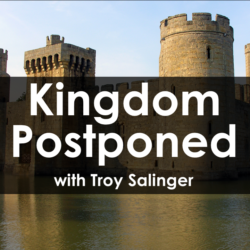
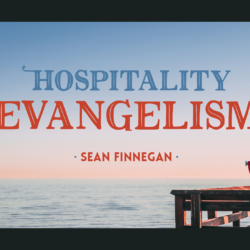
Before this interview, my impression from previously reading the ” Apocryphal ‘gospels’ ” (via Montague Rhodes James’ translation) was that they represented an exercise in Gnostic nonsense and fanciful fiction.
After this interview, my initial impression has been reinforced.
By the way, Sean, Jimmy D.G. Dunn was one of those scholars who held that Jesus very definitely shared in our fallen human nature, but uniquely remained sinless, within it. (” Romans : The People’s Bible Commentary “; p.93 ).